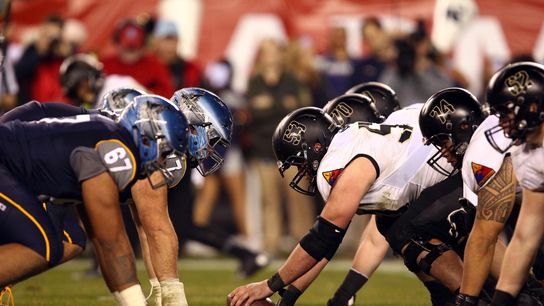Yesterday, ESPN published a piece about why the days of lineman getting in three-point stances could be numbered based on research done from engineers from Stanford and Purdue.
The reasoning, they shared, is based off data collected on offensive lineman during the professional development Spring League (a league with three seasons behind them now). The data they gathered showed that 40% fewer head acceleration events occurred when offensive lineman started from a two-point stance instead of a three-point stance. They outfitted 78 players with helmet sensors to measure the force and angle of each hit.
The study did not include data on defensive lineman, where it would likely be much more difficult to convince folks of its benefits.
While all of that is relatively interesting, it was what the piece wrapped up that really caught my attention, as spoken by former NFL offensive lineman-turned lineman trainer LeCharles Bentley.
Bentley shares that he believes the two biggest influences on player behavior are coaching language and drill selection.
"Coaching language is going to create player behavior, and your drill selection is going to reinforce it," he shares.
Bentley uses the example of coaches telling players to "get your head across" on a play that may be an outside run, using the helmet as a coaching point. Instead of that route, Bentley suggests using phrasing that drives home the same point but doesn't use the head as a coaching point. Something more along the lines of "I need you to own the angle on the defender's outside armpit," is what he shares in the article.
In all reality, what Bentley is saying seems a lot more logical to implement on a large scale. It would be really tough for anyone, or any organization, to tell Wing-T or single wing teams that they can't get down in a three-point stance...especially when you consider that since the beginning of football coaches have been barking "LOW MAN WINS!" and defensive lineman will be crouched in three-point stances across the ball from offensive lineman in a two-point stance.
So could we benefit from taking a look at our coaching language and the points we use to teach things? I genuinely think we could all use some time to reflect on that before we rejoin our respective teams.
